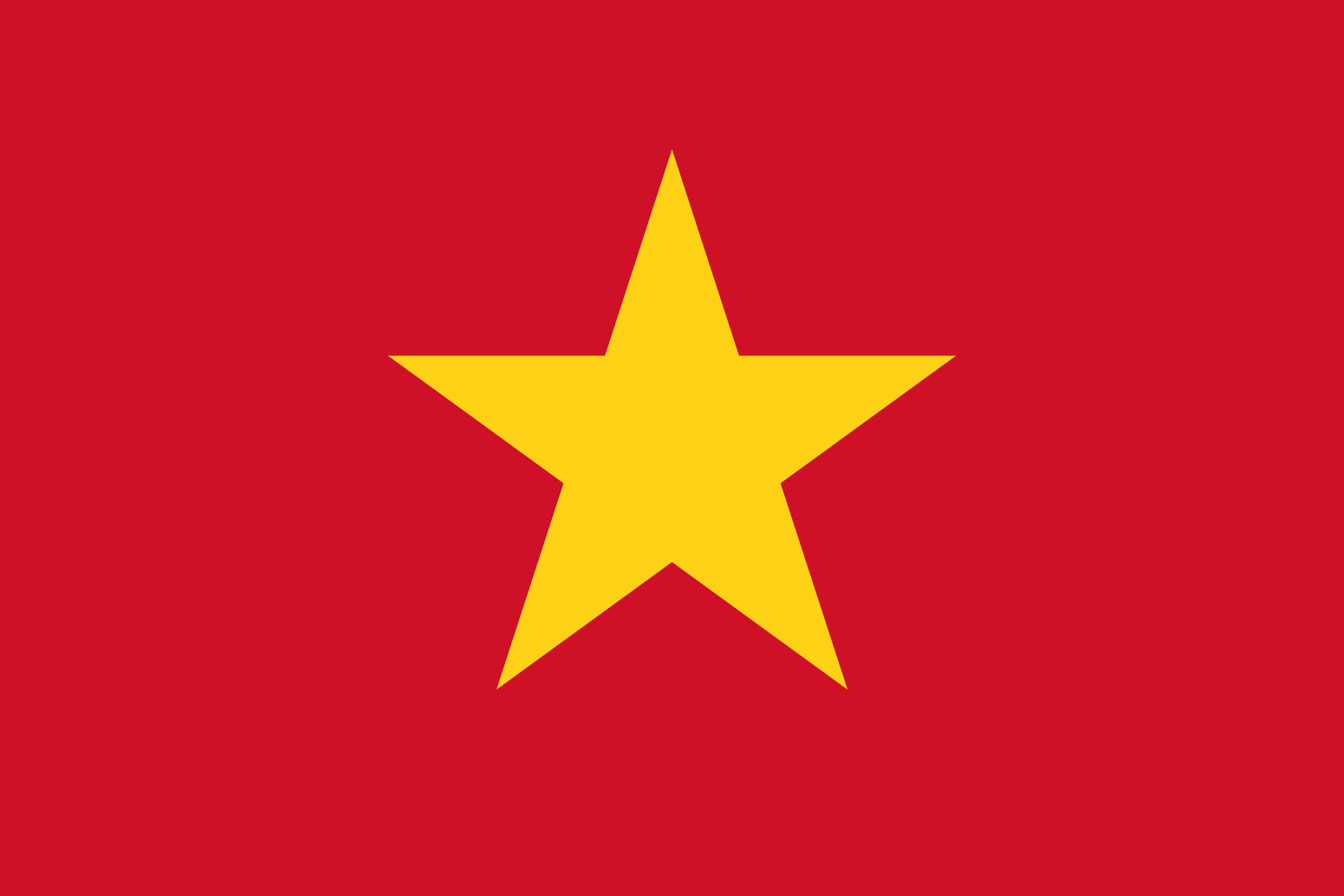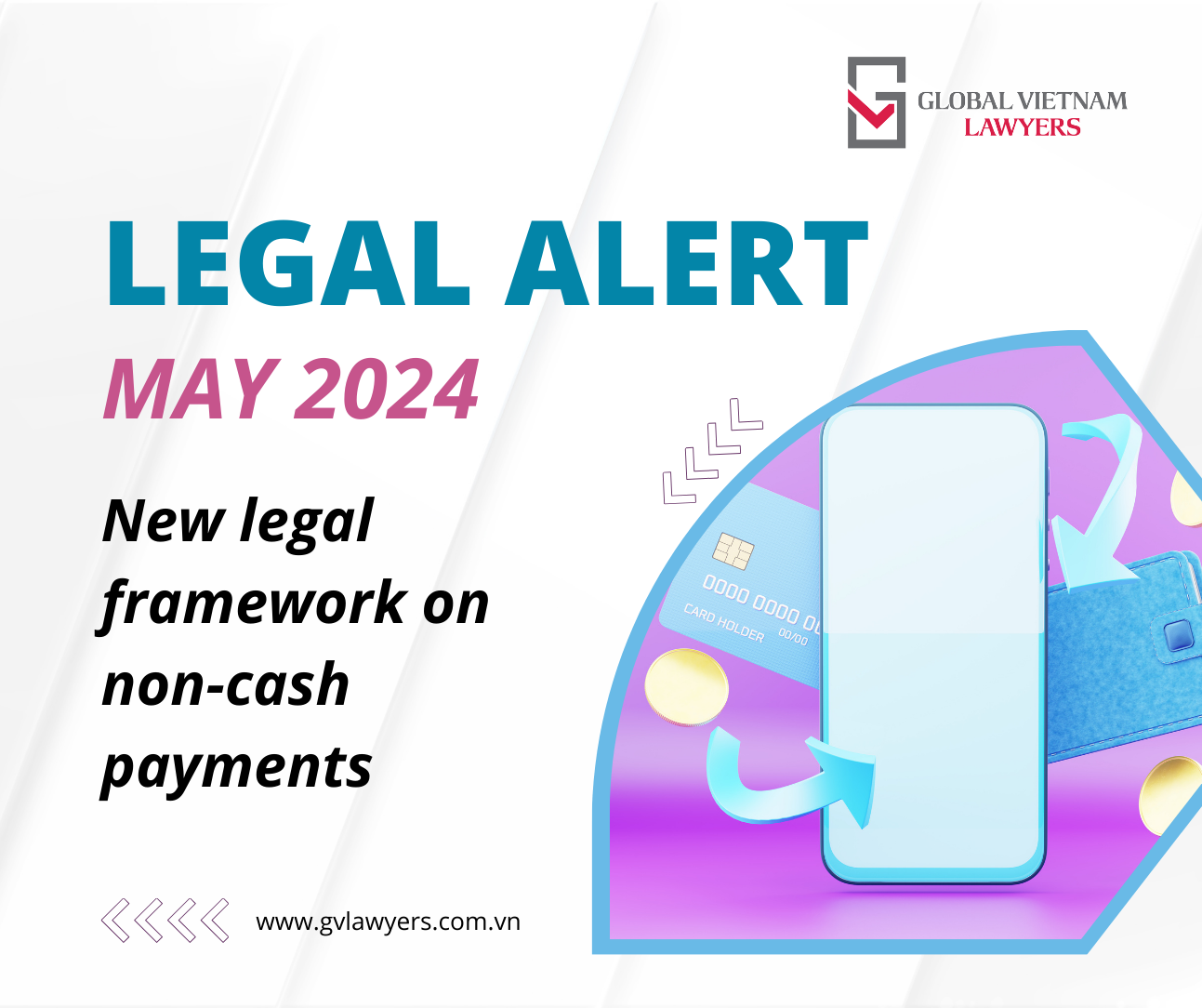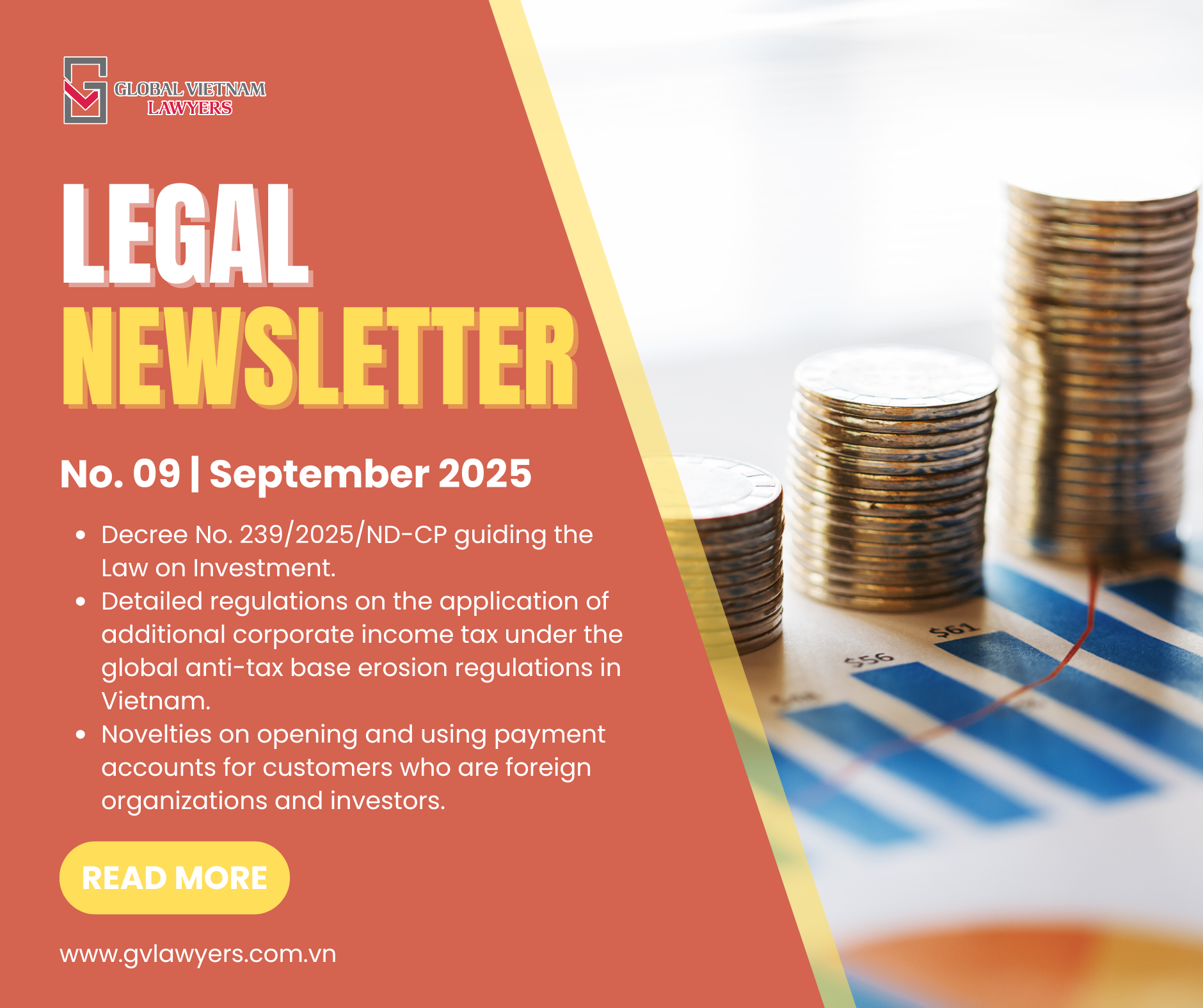On 15 May 2024, the Government issued Decree 52/2024/ND-CP (“Decree 52/2024”) regulating non-cash payments, replacing Decree 101/2012/ND-CP (amended and supplemented by Decree 80/2016/ND-CP). Decree 52/2024 takes effect from 1 July 2024 and will be an important legal framework to promote non-cash payment activities, facilitate digital transformation and have a profound impact on many related fields, subjects, organisations and individuals.
GV Lawyers would like to introduce some notable novelties of Decree 52/2024 for your reference:
1. Electronic money – Legally identified for the first time
One of the outstanding novelties of Decree 52/2024 is the first introduction of the concept of “electronic money” in an official legal document in Vietnam, Article 3.12 of Decree 52/2024 defines electronic money as “the value of Vietnamese currency stored on electronic means provided on a reciprocal basis against the amount of money prepaid by customers to banks, foreign bank branches, and payment intermediary service providers supplying electronic wallet services”.
To clarify the nature of electronic money, Article 6 of Decree 52/2024 stipulates that electronic money can only be stored in 2 storage media: electronic wallets and prepaid cards. In particular, electronic wallets and prepaid cards are issued and provided by the Bank; Organisations providing payment intermediary services are only allowed to provide electronic wallet services linked to customers’ own payment accounts and debit cards opened at the Bank. The provision, issuance and use of electronic wallets and prepaid cards comply with the regulations of the State Bank.
Thus, the legalisation of the concept and legal nature of electronic money is the legal basis to distinguish electronic money from digital/virtual currencies, or other illegitimate means of payment by organisations that do not have issuing authority.
2. Organisations providing electronic wallet services must have a minimum paid-up charter capital of VND 50 billion
According to Article 22.2 of Decree 52/2024, to be granted a License to provide intermediary payment services by the State Bank, organisations not being a bank must fully meet and ensure maintenance of all prescribed conditions. Including conditions on actually contributed or allocated minimum charter capital, specifically VND 50 billion for electronic wallet services, collection and payment support services and electronic payment gateway services; and VND 300 billion for financial switching services, international financial switching services, and electronic clearing services.
Organisations providing intermediary payment services providing electronic wallet services must ensure that the total balance on all accounts ensuring payment for electronic wallet services opened at the Bank is not lower than the total balance of all electronic wallets issued to customers.
3. Cases of blocking payment accounts
According to Article 11 of Decree 52/2024, bank accounts will have part or all of their balance blocked on the basis of prior agreement between the payment account holder and the payment service provider or upon request of the account holder; or when there is a decision or written request from a competent authority as prescribed by law.
In addition, a payment account can be blocked when the payment service provider detects a mistake or error in crediting the customer’s payment account, or blocks it as requested to refund the amount of the money transfer payment service provider due to mistakes or errors compared to the money transfer party’s payment order after crediting the customer’s payment account. In both of these cases, the amount blocked on the payment account cannot exceed the amount transferred by mistake.
Decree 52/2024 also allows joint account holders to request payment account blockade, unless there is a prior written agreement between the payment service provider and the joint payment account holders. This addition is considered consistent with practice because business cooperation transactions and joint account holding are very common in the market to ensure the performance of civil obligations of the parties in the transactions.
Organisations providing payment services, payment account owners and competent authorities who illegally block payment accounts or request them to block payment accounts, causing damage to payment account owners, are responsible for compensation as prescribed by law.
Decree 52/2024 also amends and supplements a number of related contents to better suit current practice, such as regulations on opening and using payment accounts; authorisation to use payment account; handle balance when closing payment account; secure payment account information and payment transactions; theft, collusion to steal, trade in payment account information, bank card information, electronic wallet information, etc. are strictly prohibited.
Thus, with the promulgation of Decree 52/2024, non-cash payment activities will have more conditions for development, creating favorable conditions for business activities and providing many new payment products and services which are safe and transparent, contributing to improving the effectiveness of the State’s management role in the social development trend.









